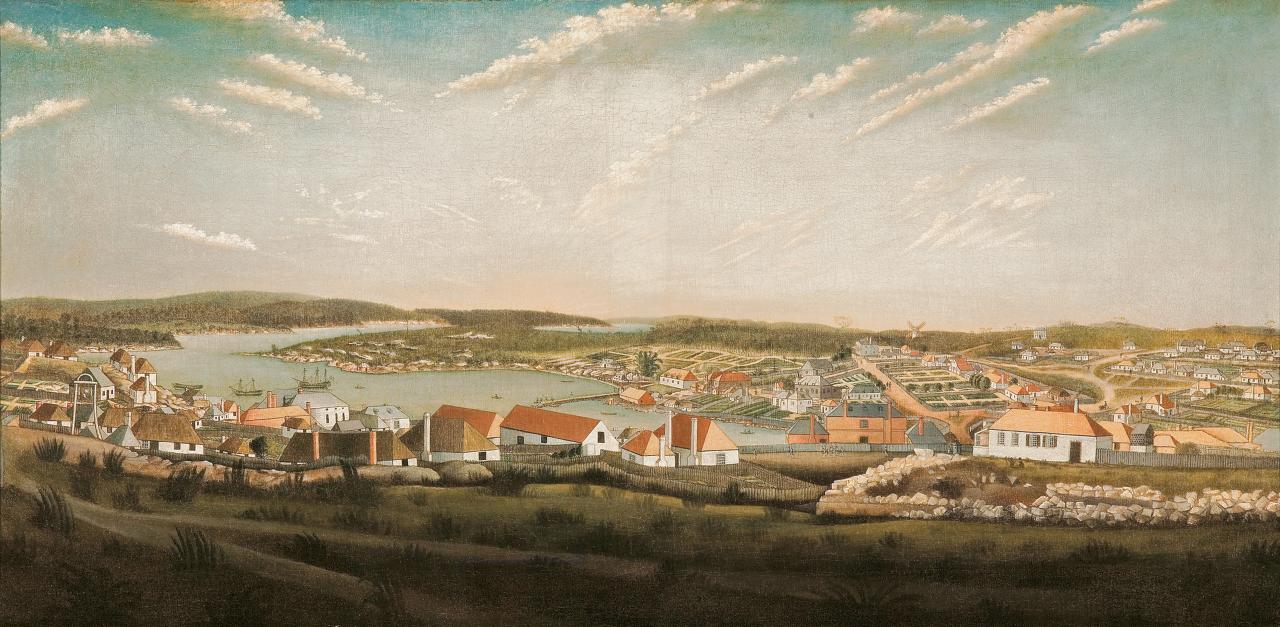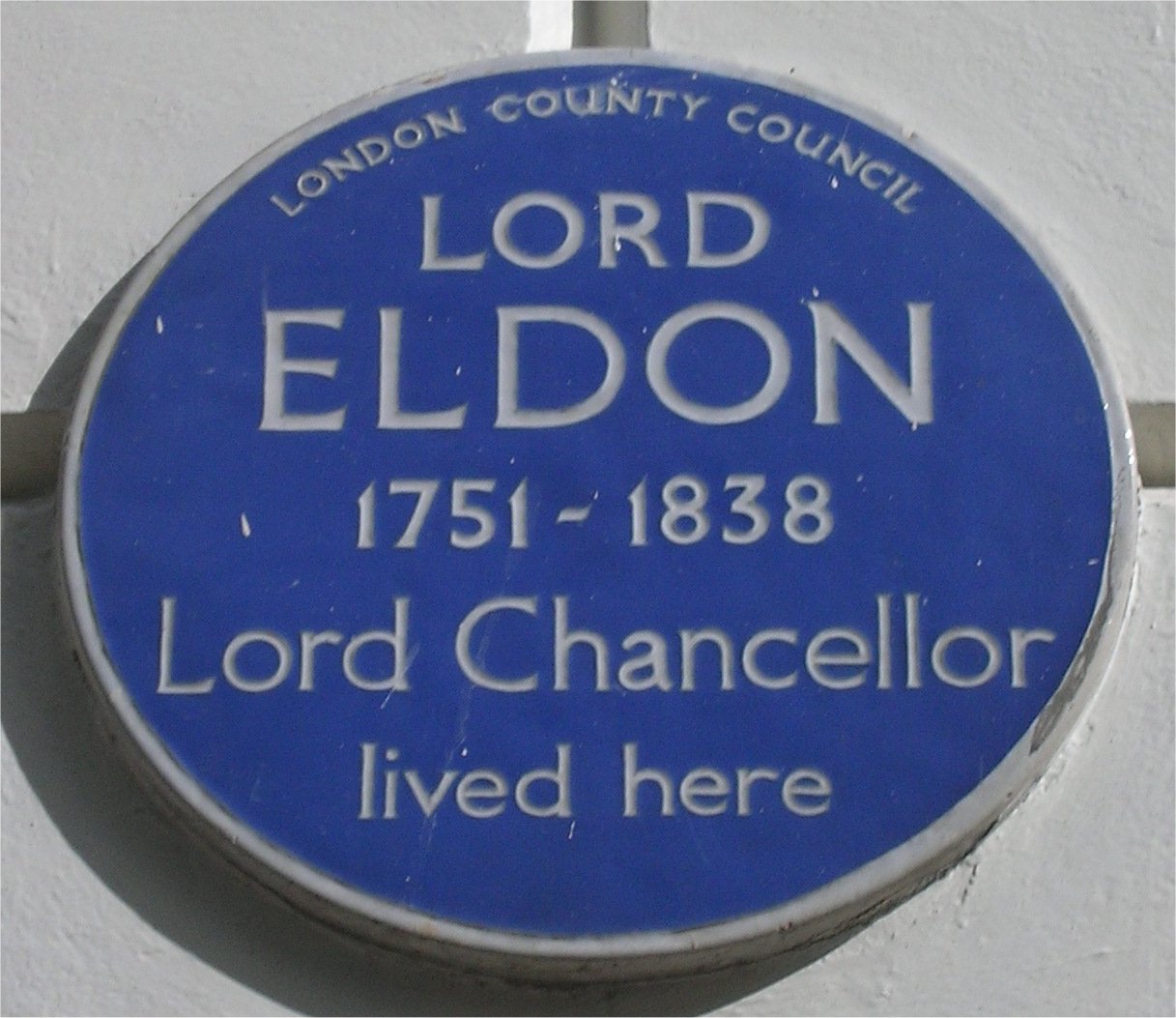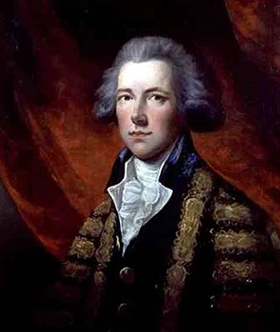|
Pitt Town
Pitt Town is a historic town and suburb of Sydney, in the state of New South Wales, Australia. Pitt Town is 59 kilometres north-west of the Sydney central business district in the Local government in Australia, local government area of the City of Hawkesbury. It is bounded in the north by the Hawkesbury River. History Settlement European settlement in Pitt Town began from 1791 when Arthur Phillip, Governor Arthur Phillip camped in the area, with a number of land grants being given in the following year along the river front in what is now known as Pitt Town Bottoms. Some of the earliest land holders included James Ruse. Pitt Town is one of the five "Macquarie Towns" established by Governor Macquarie in 1810. It is named after William Pitt the Younger, the 18th Century British Prime Minister who is responsible for initially planning the colonisation of New South Wales as a penal settlement. After the townships were christened by Lachlan Macquarie at a dinner in December ... [...More Info...] [...Related Items...] OR: [Wikipedia] [Google] [Baidu] [Amazon] |
City Of Hawkesbury
The City of Hawkesbury is a Local government in Australia, local government area that is located on the far northwest fringe of the Sydney, Greater Sydney area in New South Wales, Australia. The local government area is located in the Hawkesbury River, Hawkesbury and Blue Mountains (New South Wales), Blue Mountains regions. Hawkesbury City is named after the Hawkesbury River. Major suburbs in the City of Hawkesbury are Windsor, New South Wales, Windsor, Richmond, New South Wales, Richmond and Pitt Town, New South Wales, Pitt Town. It is a member council of the Hawkesbury River County Council. The mayor of the City of Hawkesbury is Councillor, Cr. Les Sheather, an Independent politician, independent associated with the Liberal Party of Australia (New South Wales Division), Liberal Party. Suburbs and localities in the local government area Suburbs and localities in the City of Hawkesbury are: History The original inhabitants of the Hawkesbury district were the Darug tribe of A ... [...More Info...] [...Related Items...] OR: [Wikipedia] [Google] [Baidu] [Amazon] |
Sydney Central Business District
The Sydney central business district (CBD) is the historical and main Central business district, commercial centre of Sydney. The CBD is Sydney's city centre, or Sydney City, and the two terms are used interchangeably. Colloquially, the CBD or city centre is often referred to simply as "Town" or "the City". The Sydney CBD is Australia's main financial and economic centre, as well as a leading hub of economic activity for the Asia Pacific region. 40.7% of businesses in the CBD fall within the ‘Finance and Financial Services’ or ‘Professional and Business services’ category. It is ranked overall #16 in the 2024 Oxford's Global Cities Index and amongst the top 10 cities in the Human Capital category. Approximately 15% of Sydney's total workforce is employed within the CBD. In 2012, the number of workers operating in the city was 226,972. Based on industry mix and relative occupational wage levels it is estimated that economic activity (GDP) generated in the city in 2023/24 ... [...More Info...] [...Related Items...] OR: [Wikipedia] [Google] [Baidu] [Amazon] |
Anglicanism
Anglicanism, also known as Episcopalianism in some countries, is a Western Christianity, Western Christian tradition which developed from the practices, liturgy, and identity of the Church of England following the English Reformation, in the context of the Protestant Reformation in Europe. It is one of the largest branches of Christianity, with around 110 million adherents worldwide . Most are members of national or regional Ecclesiastical province#Anglican Communion, ecclesiastical provinces of the international Anglican Communion, one of the largest Christian bodies in the world, and the world's third-largest Christian communion. When united and uniting churches, united churches in the Anglican Communion and the breakaway Continuing Anglican movement were not counted, there were an estimated 97.4 million Anglicans worldwide in 2020. Adherents of Anglicanism are called ''Anglicans''; they are also called ''Episcopalians'' in some countries. The provinces within the Anglican ... [...More Info...] [...Related Items...] OR: [Wikipedia] [Google] [Baidu] [Amazon] |
John Pitt, 2nd Earl Of Chatham
General John Pitt, 2nd Earl of Chatham (9 October 1756 – 24 September 1835) was a British soldier and politician. He spent a lengthy period in the cabinet but is best known for commanding the disastrous Walcheren Campaign of 1809. Chatham was the eldest son of William Pitt, 1st Earl of Chatham. He was two and a half years older than his famous brother William Pitt the Younger, the future prime minister. After serving as a junior officer in the American War of Independence, he succeeded his father as Earl of Chatham in 1778. Politically he was a close supporter of his brother during the following decade, leading to his appointment as First Lord of the Admiralty in 1788. Despite overseeing the Royal Navy's victory at the Glorious First of June in 1794, he faced criticism for his handling of the Admiralty and was demoted to the comparatively unimportant post of Lord Privy Seal. Although he continued to serve in William's cabinet, the relationship between the two brothers neve ... [...More Info...] [...Related Items...] OR: [Wikipedia] [Google] [Baidu] [Amazon] |
Robert Jenkinson, 2nd Earl Of Liverpool
Robert Banks Jenkinson, 2nd Earl of Liverpool (7 June 1770 – 4 December 1828) was a British Tories (British political party), Tory statesman who served as Prime Minister of the United Kingdom from 1812 to 1827. Before becoming Prime Minister he had been Foreign Secretary (United Kingdom), Foreign Secretary, Home Secretary and Secretary of State for War and the Colonies. He held the constituency of Rye from 1790 until his elevation to the House of Lords in 1803, of which he was Leader of the House of Lords, Leader from 1807 to 1827. Liverpool's fifteen years as Prime Minister saw the end of the Napoleonic Wars followed by a period of unrest and Classical radicalism, radicalism at home. During the first part of his premiership, repressive measures were taken to restore order at home, the Corn Laws were introduced and income tax was repealed. In the 1820s his leadership became more liberal, and the period saw a reform of the criminal law and prisons. Throughout his tenure as Pri ... [...More Info...] [...Related Items...] OR: [Wikipedia] [Google] [Baidu] [Amazon] |
Henry Bathurst, 3rd Earl Bathurst
Henry Bathurst, 3rd Earl Bathurst (22 May 1762 – 27 July 1834), was a High Tory, High church, High Church Tories (British political party), Pittite. He was an MP for thirty years before ennoblement. A personal friend of William Pitt the Younger, he became a broker of deals across cabinet factions during the Napoleonic era. After the Napoleonic Wars, Bathurst was on the conservative wing of the Tory party. Background and education Lord Bathurst was the elder son of Henry Bathurst, 2nd Earl Bathurst, by his wife Tryphena Scawen, daughter of Thomas Scawen (died 1774), Thomas Scawen. He was educated at Eton College from 1773 to 1778 and then up to Christ Church, Oxford. This college was considered the most academic at Oxford, and went up with his closest companions at Eton William Grenville, 1st Baron Grenville, William Wyndham Grenville, Richard, Lord Wellesley, and Canon Bathurst, his cousin. He matriculated at Christ Church on 22 April 1779, at the age of sixteen. In 1781, he d ... [...More Info...] [...Related Items...] OR: [Wikipedia] [Google] [Baidu] [Amazon] |
William Grenville, 1st Baron Grenville
William Wyndham Grenville, 1st Baron Grenville (25 October 175912 January 1834) was a British Pittite Tory politician who was Prime Minister of the United Kingdom from 1806 to 1807, but was a supporter of the Whigs (British political party), Whigs for the duration of the Napoleonic Wars. As prime minister, his most significant achievement was the abolition of the slave trade in 1807. However, his government failed to either make peace with First French Empire, France or to accomplish Catholic emancipation and it was dismissed in the same year. Background Grenville was the son of the Whig Prime Minister George Grenville. His mother, Elizabeth Grenville, Elizabeth, was the daughter of the Tory statesman Sir William Wyndham, 3rd Baronet. He had two elder brothers: Thomas Grenville, Thomas and George Nugent-Temple-Grenville, 1st Marquess of Buckingham, George. He was thus uncle to the 1st Duke of Buckingham and Chandos. He was also related to the Pitt family by marriage since ... [...More Info...] [...Related Items...] OR: [Wikipedia] [Google] [Baidu] [Amazon] |
John Scott, 1st Earl Of Eldon
John Scott, 1st Earl of Eldon, (4 June 1751 – 13 January 1838) was a British barrister and politician. He served as Lord High Chancellor of Great Britain between 1801 and 1806 and again between 1807 and 1827. Early life Background Eldon was born in Newcastle upon Tyne. His grandfather, William Scott of Sandgate, a street adjacent to the Newcastle quayside, was clerk to a fitter, a sort of water-carrier and broker of coals. His father, whose name also was William, began life as an apprentice to a fitter, in which service he obtained the freedom of Newcastle, becoming a member of the guild of Hostmen (coal-fitters); later in life he became a principal in the business, and attained a respectable position as a merchant in Newcastle, accumulating property worth nearly £20,000. Education Eldon was educated at Royal Grammar School, Newcastle, Newcastle upon Tyne Royal Grammar School. He was not remarkable at school for application to his studies, though his wonderful memory ... [...More Info...] [...Related Items...] OR: [Wikipedia] [Google] [Baidu] [Amazon] |
Prime Minister
A prime minister or chief of cabinet is the head of the cabinet and the leader of the ministers in the executive branch of government, often in a parliamentary or semi-presidential system. A prime minister is not the head of state, but rather the head of government, serving as the chief of the executive under either a monarch or a president in a republican form of government. In parliamentary systems of government (be they constitutional monarchies or parliamentary republics), the Prime Minister (or occasionally a similar post with a different title, such as the Chancellor of Germany) is the most powerful politician and the functional leader of the state, by virtue of commanding the confidence of the legislature. The head of state is typically a ceremonial officer, though they may exercise reserve powers to check the Prime Minister in unusual situations. Under some presidential systems, such as South Korea and Peru, the prime minister is the leader or the most s ... [...More Info...] [...Related Items...] OR: [Wikipedia] [Google] [Baidu] [Amazon] |
William Pitt The Younger
William Pitt (28 May 1759 – 23 January 1806) was a British statesman who served as the last prime minister of Kingdom of Great Britain, Great Britain from 1783 until the Acts of Union 1800, and then first Prime Minister of the United Kingdom, prime minister of the United Kingdom from January 1801. He left office in March 1801, but served as prime minister again from 1804 until his death in 1806. He was also Chancellor of the Exchequer for all of his time as prime minister. He is known as "Pitt the Younger" to distinguish him from his father, William Pitt the Elder, who had also previously served as prime minister. Pitt's prime ministerial tenure, which came during the reign of King George III, was dominated by major political events in Europe, including the French Revolution and the Napoleonic Wars. Pitt, although often referred to as a Tory (British political party), Tory, or "new Tory", called himself an "independent Whig (British political party), Whig" and was generally oppo ... [...More Info...] [...Related Items...] OR: [Wikipedia] [Google] [Baidu] [Amazon] |
Governor Macquarie
Major General Lachlan Macquarie, CB (; ; 31 January 1762 – 1 July 1824) was a British Army officer and colonial administrator from Scotland. Macquarie served as the fifth Governor of New South Wales from 1810 to 1821, and had a leading role in the social, economic, and architectural development of the colony. He is considered by historians to have had a crucial influence on the transition of New South Wales from a penal colony to a free settlement and therefore to have played a major role in the shaping of Australian society in the early nineteenth century. Macquarie played a central role in urban planning in the colony. He had a significant impact on the development of modern Sydney, establishing the layout upon which the modern city centre is based, establishing Hyde Park as Australia's first public park, overseeing the construction of various public buildings along Macquarie Street, and devising the layouts of a number of settlements which today are part of Western Sydn ... [...More Info...] [...Related Items...] OR: [Wikipedia] [Google] [Baidu] [Amazon] |
Macquarie Towns
Macquarie Towns or the Five Macquarie Towns is the collective term for the towns of Castlereagh, Pitt Town, Richmond, Wilberforce and Windsor, all located on and around the Hawkesbury River in New South Wales, Australia. All five towns were established in December 1810 by Governor of New South Wales Lachlan Macquarie. Macquarie established the towns on higher ground following serious flooding of the Hawkesbury River the previous year. This was important as the area provided the fledgling colony of New South Wales The Colony of New South Wales was a colony of the British Empire from 1788 to 1901, when it became a State of the Commonwealth of Australia. At its greatest extent, the colony of New South Wales included the present-day Australian states of New ... with half its annual grain requirements. References External linksExtract from Macquarie's diarydetailing his establishment and naming of the five towns. History of New South Wales Hawkesbury River City of Hawkesb ... [...More Info...] [...Related Items...] OR: [Wikipedia] [Google] [Baidu] [Amazon] |









